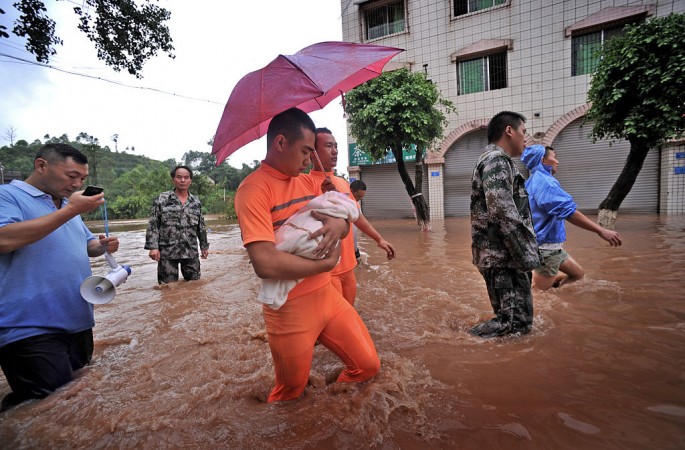Paternity leaves took the center stage in December when Facebook CEO Mark Zuckerberg announced he would take a two-month paternity leave following the birth of daughter Maxima. Of course, the announcement was overshadowed by his decision to donate 95 percent of his Facebook shares, or $45 billion, to charity.
In China, millions of fathers would have an opportunity to use their parental leave following the policy change of the country one-child policy to a two-child policy that took effect on Jan. 1 2016. It changes a 37-year-old policy that resulted in a significant drop in China's population under the age of 20 to 27 percent in 2010 from 51 percent in 1970, reports the South China Morning Post.
Meanwhile, the number of people aged 60 and above grew to 14 percent from 7 percent for the same 40-year period. Median age also jumped to 35 from 20. It's a ticking demographic time bomb that the new two-child policy hopes to correct.
Citing studies in western nation where parental leave policies have been in place for years, WomeninChina writes that with the policy change, more fathers would be encouraged to be more involved in child care and domestic work when their second child arrives.
Among British couples, studies found positive relationship between a father being involved in domestic work and quicker transition to a second child among two-income pairs. However, the dynamics are different when the mother does not work.
More paternal involvement in child care is linked with better relationship quality between the husband and wife and positive effect on the offspring's wellbeing.
Several weeks of paternal leave is better than just a few days, some studies suggest. Shorter leaves allow the mother to recover faster, but longer leaves allow the father to acquire substantial domestic work skills or improve the bonds with children.
However, Chinese fathers are allowed only one week paternal leaves, while the mothers are allowed up to 98 days. The paternal leave is short compared to European countries, although WomaninChina admits it is difficult to spell out the ideal period for parental leave entitlements since it depends on the objectives that the government is pursuing.



























